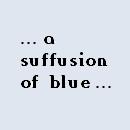I need an advice from all of the experts here:
Does a HD SerialNr always consist of a combination of numbers (integers) and letters (upper and/or lowercase) only?
If Yes, should it be enough to define an ASCII-CharRange between 32 and 127 for it (0 to 31 = non-printable chars)?
Or does somebody of you have ever seen a SerialNr on top of an HD-enclosure that
may consist of chars from extended ASCII = ANSI (range between 32 and 255)?
Furthermore, is it possible that a HD SerialNr may consist of unicode chars also?
To clarify, I'm not talking about SerialNrs seen/determined by external or internal software from your running system.
I mean the SerialNr printed on top of any HD enclosure.
Thanks much in advance for any reply

















